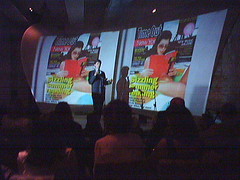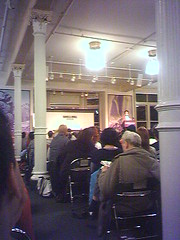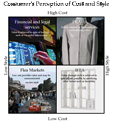More notes from James Surowiecki’s The Wisdom of Crowds…
As an example of solving cognition problems, he discusses decision markets like The Iowa Electronic Markets (IEM), which has generally outperformed election polls. Over time, they are also less volatile than polls, changing less dramatically to new information. The IEM is not big or diverse, involving only about 800 people, mostly men from Iowa. It and the Hollywood Stock Exchange (HSX) work well without much — or any — money at stake. David Pennock found that ‘status and reputation proved incentive enough to encourage serious investment of time and energy in what is, after all, a game.’
Bees in a hive send out scouts who return and do a waggle dance to indicate the quality of nectar they’ve found. The dance attracts a certain number of forager bees according to how intense the dance is. It’s a natural way to distribute the hive’s resources across finding opportunities and pursuing them. The bees scout and explore simultaneously rather than scout, analyze and act.
Overly-homogenous groups, even smart ones, are less able to find good solutions over time than more diverse groups, even if the latter’s overall intelligence is lower. James G. March, an organizational theorist, said that groups that are too much alike find it hard to keep learning, because each member brings less and less new information to the group, and ‘they spend too much time exploiting and not enough time exploring.’ Irving Janis found homogeneous groups are more susceptible to groupthink. Soloman Asch found individuals will deny what they believe is the truth in order to confer with a group (although this is easy to rectify).
Expertise is, in many contexts, overrated. Expertise can be narrowly focused, as Herbert Simon found in his study of chess players. Experts’ judgments are often not consistent with other experts’ judgments , and experts aren’t good at judging the accuracy of their own judgments (exceptions were bridge players and weather forecasters). Wharton professor J. Scott Armstrong’s ‘seer-sucker theory’: ‘No matter how much evidence exists that seers do not exist, suckers will pay for the existence of seers.‘


